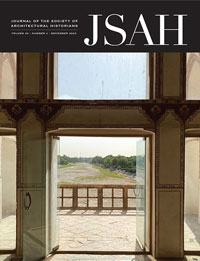Washington, DC
For millennia, common lands, waters, woodlands, grasslands, fisheries, wetlands, and other ecologies, together with commoning—the practices and customs associated with managing and using these resources and governing access—have been crucial to the sustenance and social reproduction of rural people, often supplementing agricultural, pastoral, or fishing economies. Commons and commoning have been especially prevalent in cultures with little or no private ownership, but they have also endured where private appropriation developed. Never static, both commons and commoning became hotly contested from at least the sixteenth century onwards as the infant global capitalist system pressed its drive to appropriate nature, labor, and energy for private accumulation. Often violent, this contestation was especially acute in colonization processes, where people of different property regimes suddenly competed for the same resources. Featuring a dialogue among scholars of diverse temporalities, geographies, and disciplines, an aim of this symposium is to transcend the limitations of dualities often associated with the study of commons to reveal how societies in the Americas, Europe, Asia, and Africa have constructed and interacted materially with terrestrial and watery commons. For the complete abstract visit the symposium webpage. This symposium was organized by Vera S. Candiani, Princeton University.
A limited number of Bliss Symposium Awards will be available to currently enrolled undergraduate and graduate students to attend Dumbarton Oaks symposia. The deadline for applying is March 15, 2024.
Speakers:
Elizabeth Arkush, University of Pittsburgh
Gabriel de Avilez Rocha, Brown University
Mariana Dias Paes, Max Planck Institute for Legal History and Legal Theory
Weiwei Luo, Florida State University
Zozan Pehlivan, University of Minnesota
José Carlos de la Puente, Texas State University
Caterina Scaramelli, Boston University
Francesco Vallerani, Università di Venezia Cà Foscari
Anjuli Webster, Emory University
Karl Zimmerer, Pennsylvania State University


